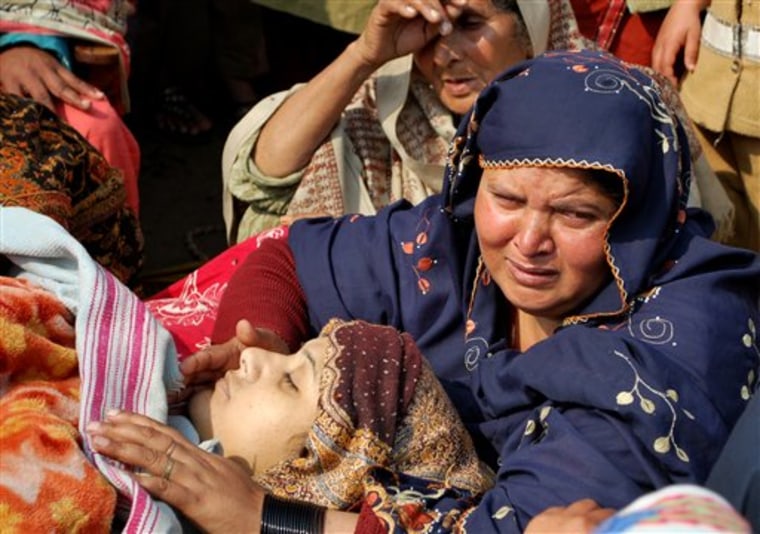The U.S. ambassador to Pakistan pressed the country's president Monday to release an American official who Washington says was illegally detained after he shot and killed two men trying to rob him in the eastern city of Lahore.
Ambassador Cameron Munter's meeting with President Asif Ali Zardari in Islamabad followed repeated public demands for the American's freedom and underlined Washington's growing frustration with an ally that receives billions of dollars in U.S. aid.
The U.S. has said the American, who has been identified by Pakistanis as Raymond Allen Davis, acted in self-defense when he shot the two men on Jan. 27 and must be released because he has diplomatic immunity.
Munter told Zardari that "Pakistan must comply with its obligations under international law and immediately release the American diplomat illegally detained in Lahore," according to U.S. Embassy spokeswoman Courtney Beale.
Pakistani presidential spokesman Farhatullah Babar confirmed the meeting took place but refused to comment on details of the discussion.
U.S. Secretary of State Hillary Rodham Clinton, who spoke with Zardari by phone last week about the diplomat's case, also raised it with Pakistan army chief Gen. Ashfaq Parvez Kayani on the sidelines of an international security conference in Germany at the weekend, State Department spokesman P.J. Crowley said.
"We continue to make it clear to the government of Pakistan that our diplomat has diplomatic immunity and in our view was acting in self-defense and should be released," Crowley told a news conference in Washington on Monday.
The case has put the Pakistani government in a difficult position given the level of anti-American sentiment in the country, which is partly driven by U.S. drone missile attacks against militants near Pakistan's border with Afghanistan.
The Pakistani government could face charges of being an American lackey if it hands Davis over to the U.S. But refusing to do so risks harming a relationship with a key ally.
As a result, Pakistani officials have avoided definitive statements on whether Davis has diplomatic immunity. Federal officials have said the decision on his fate is up to courts in Punjab province, where the shootings occurred. But provincial officials have said the federal government must inform them whether Davis has immunity and has not yet done so. The two governments are controlled by rival political parties, which has further complicated the case.
Besides the two men who were shot dead, a bystander was killed when he was struck by an American car rushing to the scene to help Davis. Police have said they want to question the Americans suspected in that death as well.
Protesters have held a handful of demonstrations in Pakistan calling on the government to refuse U.S. demands to hand over Davis. About 150 people took to the streets in the central city of Multan on Monday, some of whom carried signs that said "Justice should be done — Davis should be hanged."
"On the one hand, innocent citizens are being killed in drone attacks, and on the other, U.S. agents have license to kill citizens in the streets," said one of the protest leaders, Tariq Naeemullah. "The law should take its course so that justice can be done and Pakistan can be proven a sovereign and independent state."
The wife of one of the men who Davis shot committed suicide on Sunday, explaining beforehand that she feared her husband's killer would be freed without trial. Her death could further inflame anti-American sentiment.
